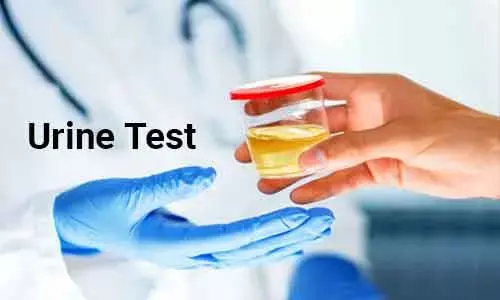- Home
- Medical news & Guidelines
- Anesthesiology
- Cardiology and CTVS
- Critical Care
- Dentistry
- Dermatology
- Diabetes and Endocrinology
- ENT
- Gastroenterology
- Medicine
- Nephrology
- Neurology
- Obstretics-Gynaecology
- Oncology
- Ophthalmology
- Orthopaedics
- Pediatrics-Neonatology
- Psychiatry
- Pulmonology
- Radiology
- Surgery
- Urology
- Laboratory Medicine
- Diet
- Nursing
- Paramedical
- Physiotherapy
- Health news
- Fact Check
- Bone Health Fact Check
- Brain Health Fact Check
- Cancer Related Fact Check
- Child Care Fact Check
- Dental and oral health fact check
- Diabetes and metabolic health fact check
- Diet and Nutrition Fact Check
- Eye and ENT Care Fact Check
- Fitness fact check
- Gut health fact check
- Heart health fact check
- Kidney health fact check
- Medical education fact check
- Men's health fact check
- Respiratory fact check
- Skin and hair care fact check
- Vaccine and Immunization fact check
- Women's health fact check
- AYUSH
- State News
- Andaman and Nicobar Islands
- Andhra Pradesh
- Arunachal Pradesh
- Assam
- Bihar
- Chandigarh
- Chattisgarh
- Dadra and Nagar Haveli
- Daman and Diu
- Delhi
- Goa
- Gujarat
- Haryana
- Himachal Pradesh
- Jammu & Kashmir
- Jharkhand
- Karnataka
- Kerala
- Ladakh
- Lakshadweep
- Madhya Pradesh
- Maharashtra
- Manipur
- Meghalaya
- Mizoram
- Nagaland
- Odisha
- Puducherry
- Punjab
- Rajasthan
- Sikkim
- Tamil Nadu
- Telangana
- Tripura
- Uttar Pradesh
- Uttrakhand
- West Bengal
- Medical Education
- Industry
Researchers develop an accurate urine test for prostate cancer

Researchers at the Johns Hopkins Kimmel Cancer Center have developed a simple and noninvasive urine test for prostate cancer that would be a significant step forward in diagnosis.
Researchers have made significant progress toward the development of a simple, noninvasive liquid biopsy test that detects prostate cancer from RNA and other specific metabolic chemicals in the urine. Their findings of research appear in the journal Scientific Reports.
The investigators emphasize that this is a proof-of-principle study for the urine test, and it must be validated in additional, larger studies before it is ready for clinical use.
The researchers used RNA deep-sequencing and mass spectrometry to identify a previously unknown profile of RNAs and dietary byproducts, known as metabolites, among 126 patients and healthy, normal people. The cohort included 64 patients with prostate cancer, 31 with benign prostatic hyperplasia and prostatitis diseases, and 31 healthy people with none of these conditions. RNA alone was not sufficient to positively identify cancer, but the addition of a group of disease-specific metabolites provided separation of cancer from other diseases and healthy people.
Read Also:Baseline PSA levels can determine long-term prostate cancer risk in middle-aged men: JAMA
"A simple and noninvasive urine test for prostate cancer would be a significant step forward in diagnosis. Tissue biopsies are invasive and notoriously difficult because they often miss cancer cells, and existing tests, such as PSA (prostate-specific antigen) elevation, are not very helpful in identifying cancer," says Ranjan Perera, Ph.D., the study's senior author. Perera is also the director of the Center for RNA Biology at Johns Hopkins All Children's Hospital, a senior scientist at the Johns Hopkins All Children's Cancer & Blood Disorders Institute and the Johns Hopkins All Children's Institute for Fundamental Biomedical Research, and an associate professor of oncology at the Johns Hopkins University School of Medicine and Johns Hopkins Kimmel Cancer Center member.
"We discovered cancer-specific changes in urinary RNAs and metabolites that -- if confirmed in a larger, separate group of patients -- will allow us to develop a urinary test for prostate cancer in the future," says Bongyong Lee, Ph.D., the study's first author and a senior scientist at the Cancer & Blood Disorders Institute.
Read Also: Simple urine test may detect Bladder cancer- Lancet study
Medical Dialogues Bureau consists of a team of passionate medical/scientific writers, led by doctors and healthcare researchers. Our team efforts to bring you updated and timely news about the important happenings of the medical and healthcare sector. Our editorial team can be reached at editorial@medicaldialogues.in.
Dr Kamal Kant Kohli-MBBS, DTCD- a chest specialist with more than 30 years of practice and a flair for writing clinical articles, Dr Kamal Kant Kohli joined Medical Dialogues as a Chief Editor of Medical News. Besides writing articles, as an editor, he proofreads and verifies all the medical content published on Medical Dialogues including those coming from journals, studies,medical conferences,guidelines etc. Email: drkohli@medicaldialogues.in. Contact no. 011-43720751


